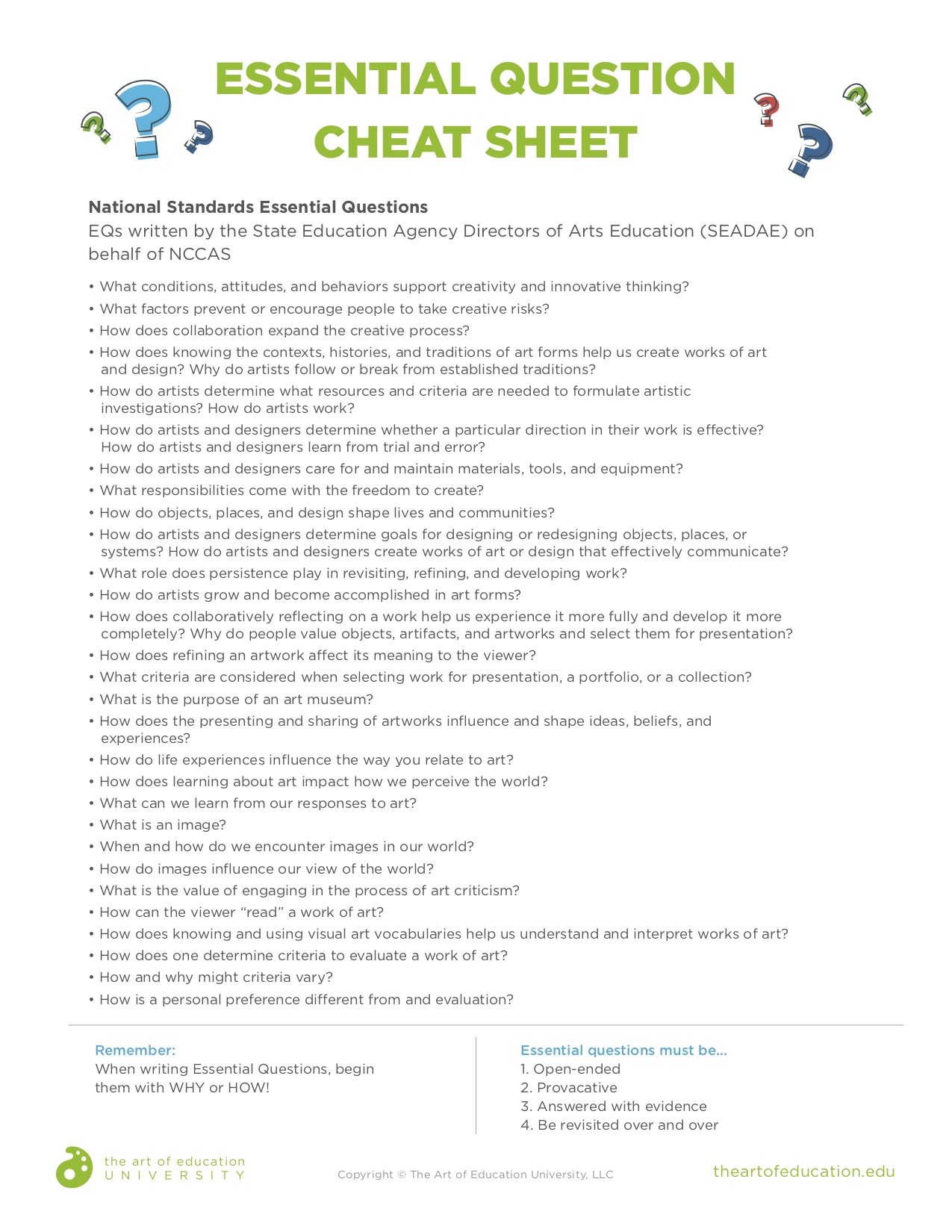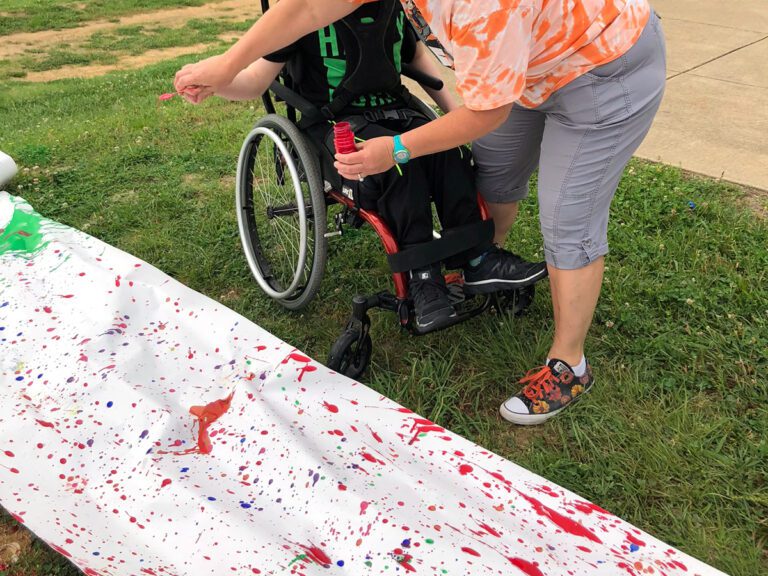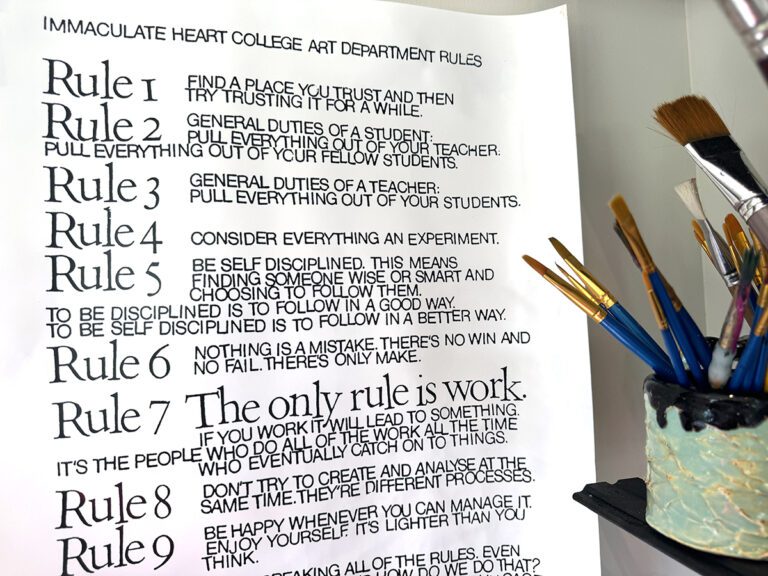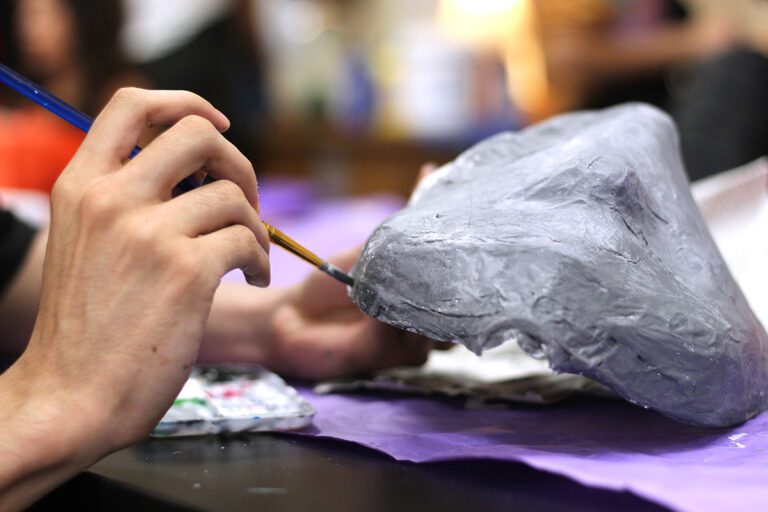
It’s time for a Pop quiz!
Which of these is an essential question for the art room?
A. How do the arts reflect values in a culture?
B. What common symbols are found in the work of the Lascaux cave painters?
If you answered A, you are right! The question is provocative, open-ended, and challenging which are all characteristics of a great essential question.
Using essential questions to drive learning in classrooms from kindergarten to college is a smart way to dive deeper into higher order thinking. Just as important, using essential questions can help students make key connections between what they are learning in the art room and apply it to their own lives and the greater world.
In addition, essential questions are a big part of the National Core Arts Standards. If you’re interested in learning more about bringing the standards into the art room, you won’t want to miss the Implementing the National Art Standards PRO Learning Pack. Johanna Russell will show you how to easily build on your existing curriculum by utilizing the standards in your everyday teaching.
Interested in writing a few essential questions of your own? Keep these 3 characteristics in mind.
- In addition to being provocative, open-ended, and challenging, questions should spur debate in your classroom.
- Answers to essential questions should require evidence and support.
- Essential questions should occur over and over again. Revisit them as often as possible to allow students to grow in how they think about a few core topics.
You could write some questions tailor-made to your curriculum, or you could download the free list of essential questions below!
Do you struggle with coming up with great essential questions? How can we help?
How do you use essential questions in your teaching?
Magazine articles and podcasts are opinions of professional education contributors and do not necessarily represent the position of the Art of Education University (AOEU) or its academic offerings. Contributors use terms in the way they are most often talked about in the scope of their educational experiences.





